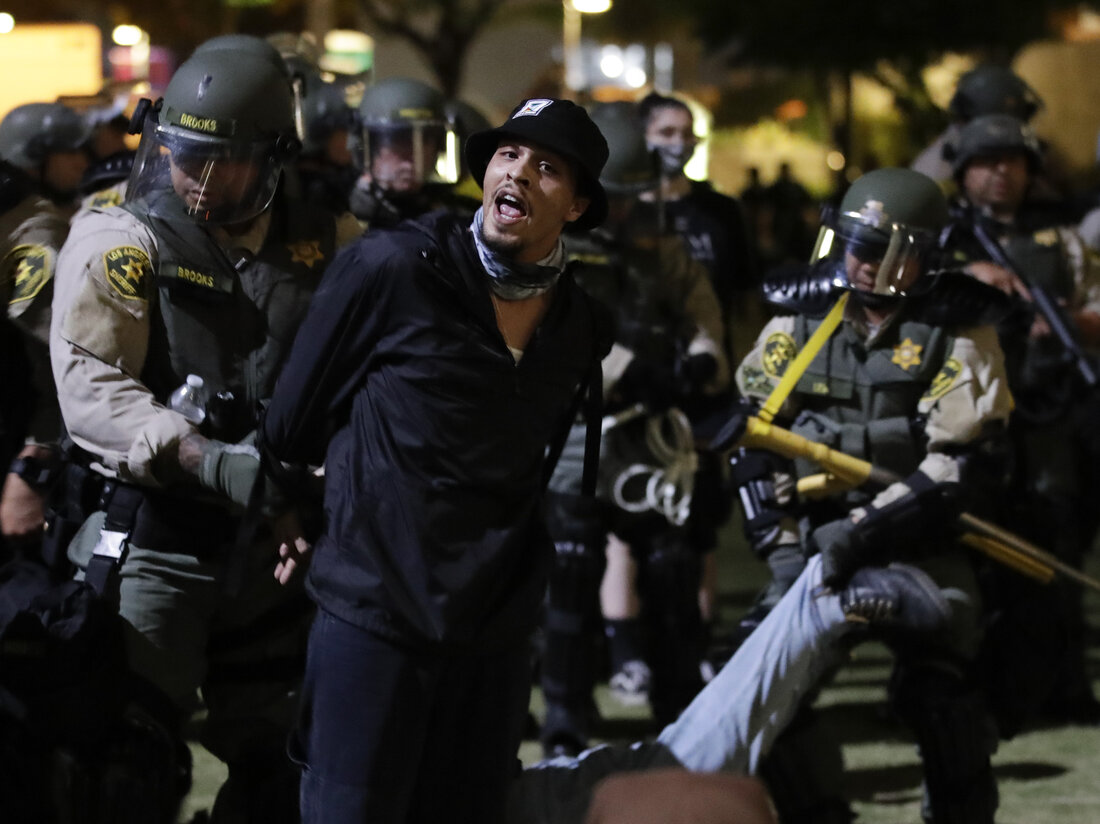Zach Bryan's Bad News Sparks ICE Controversy Over Immigration

Introduction
Country music star Zach Bryan has found himself at the center of controversy with his upcoming song "Bad News." Critics have interpreted the song as being critical of Immigration and Customs Enforcement (ICE), sparking a significant backlash. Bryan has taken to defending his work, emphasizing that "Bad News" is about his love for America and its people, rather than a critique of any particular group or institution.
Key Details
The controversy began when Bryan released a snippet of "Bad News," which he had teased in July. The backlash was swift, with officials from the Trump administration weighing in on the perceived anti-ICE sentiment. Bryan's response aimed to clarify the song's intent, highlighting his broader message of unity and love for the country.
Impact
The reaction to "Bad News" underscores the ongoing debate over immigration policies and the role of ICE. Bryan's explanation has not fully quelled the criticism, but it has opened a dialogue about the interpretation of art and its impact on societal discourse.
About the People Mentioned
Zach Bryan
Zachary Lane Bryan, born April 2, 1996, in Okinawa, Japan, is an American country music singer-songwriter known for his raw, authentic style blending classic folk and outlaw country influences. He grew up in Oologah, Oklahoma, in a family with a strong U.S. Navy tradition, which he continued by serving seven to eight years in the Navy before receiving an honorable discharge to pursue music full-time[1][2][4][5][6]. Bryan began uploading songs recorded on his phone to YouTube in 2017 while still serving in the Navy, gaining attention with his viral track “Heading South,” recorded outside his barracks[2][4]. His debut album, *DeAnn* (2019), named after his late mother, was self-produced and recorded in just 48 hours. The album showcased his tender songwriting and gained a dedicated following[2][5]. He followed with his second album, *Elisabeth* (2020), and an EP, *Quiet, Heavy Dreams* (2020), further establishing his reputation for heartfelt storytelling[2]. Bryan’s major label debut, *American Heartbreak* (2022), was a critical and commercial success, becoming the biggest-selling country album of the year’s first sales week. Songs like “Something in the Orange” went viral on TikTok, broadening his audience[1][3]. He has released additional projects including the *Summertime Blues* EP and a live album, maintaining a prolific output[3]. His 2023 self-titled album debuted at number one on the Billboard 200, followed by *The Great American Bar Scene* in 2024, which included collaborations with artists such as John Mayer and Bruce Springsteen[1]. Bryan has earned multiple accolades, including the Academy of Country Music’s New Male Artist of the Year in 2022 and a Grammy Award for his duet “I Remember Everything” with Kacey Musgraves[1]. Despite his mainstream success, he retains an anti-establishment image and a passionate fanbase drawn to his sincere and unpolished musical approach[3][4].
About the Organizations Mentioned
Immigration and Customs Enforcement
**Immigration and Customs Enforcement (ICE)** is a federal law enforcement agency under the U.S. Department of Homeland Security (DHS). Established by the Homeland Security Act of 2002, ICE was created in response to the 9/11 attacks to enhance national security and protect public safety. The agency's primary mission is to enforce federal laws related to customs, trade, and immigration, focusing on cross-border crime and illegal immigration[1][2][3]. **History and Structure:** ICE was formed by merging the U.S. Customs Service and the Immigration and Naturalization Service. It operates with over 20,000 staff across more than 400 global offices, with an annual budget of approximately $8 billion[3]. The agency is structured into several key directorates, including **Enforcement and Removal Operations (ERO)**, which handles immigrant detention and deportation, and **Homeland Security Investigations (HSI)**, which investigates transnational crimes[1][2]. **Key Functions and Achievements:** ICE is known for its immigration enforcement efforts, particularly in interior regions of the U.S. It conducts investigations into human trafficking, terrorism, and other transnational crimes. Despite controversy over policies like family separation and detention conditions, ICE has made significant strides in combating illegal activities and protecting national security[4][6]. **Current Status and Notable Aspects:** Today, ICE continues to face challenges and controversy, particularly regarding its enforcement practices and impact on immigrant communities. The agency's actions can have profound effects on local economies and social services, as fear of ICE may deter undocumented immigrants from accessing essential services[6]. Despite these challenges, ICE remains a crucial component of U.S. immigration policy, working to balance enforcement with humanitarian concerns.
Trump administration
The **Trump administration** refers to the executive branch of the U.S. federal government during Donald J. Trump’s presidency, initially from January 20, 2017, to January 20, 2021, and resuming with his second term starting in 2025. It was characterized by a mix of aggressive domestic policies, significant judicial appointments, and a distinct foreign policy approach that emphasized "America First" principles[4][8]. The administration’s key activities included **tax reform**, notably passing the $3.2 trillion Tax Cuts and Jobs Act, which represented the largest overhaul of the U.S. tax code in decades[5]. Trump also renegotiated trade agreements with major economies including Mexico, Canada, China, Japan, and South Korea, prioritizing bilateral deals over multilateral ones such as the Trans-Pacific Partnership (TPP), which the administration withdrew from early on[1][2]. The administration sought to protect American jobs by restricting cheap foreign labor and influencing agencies like the Tennessee Valley Authority to retain American workers[5]. On the judicial front, the Trump administration appointed over 200 federal judges, including three Supreme Court justices—Neil Gorsuch, Brett Kavanaugh, and Amy Coney Barrett—shaping the judiciary for years to come[4]. These appointments were among the most significant achievements, influencing U.S. law on multiple fronts. In foreign policy, the administration pursued a controversial agenda: it imposed travel bans on several predominantly Muslim countries, withdrew U.S. troops from northern Syria, and supported Saudi Arabia militarily despite congressional opposition related to the Yemen conflict[1][3]. It also fostered new international technology alliances, such as securing commitments from allies to exclude Chinese telecom giant Huawei from 5G infrastructure and signing AI cooperation agreements with the UK[5]. The Trump administration faced substantial political turmoil, including two impeachments by the House of Representatives—first in 2019 over Ukraine dealings, and again in 2021 following the January















